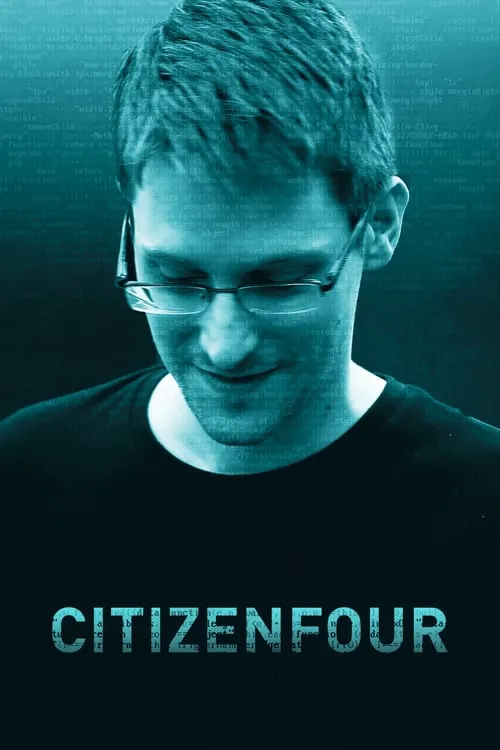Citizenfour

Plot
In the midst of the modern digital age, where surveillance, espionage, and the protection of national security have become intertwined, a story of revelation and courage unfolded. Edward Snowden, a young IT expert working for the Central Intelligence Agency (CIA) and later for the private surveillance firm Booz Allen Hamilton, grew increasingly dissatisfied with his role in facilitating the widespread collection of personal data of millions of innocent Americans without their knowledge. This unease eventually propelled him into a pivotal decision that would shake the very foundations of the global intelligence community. Citizenfour, the documentary film by Laura Poitras, delves into the enigmatic figure of Edward Snowden, a former NSA (National Security Agency) contractor who in June 2013 began secretly communicating with two American journalists, Glenn Greenwald and Barton Gellman, to expose the NSA's comprehensive surveillance programs. At the beginning of Citizenfour, we find Laura Poitras and Glenn Greenwald awaiting the arrival of Edward Snowden at a hotel room in Hong Kong. It is the first of many clandestine meetings they would share, all conducted under the cloak of secrecy, given the sensitivity and potential danger posed by Snowden's revelations. Poitras's camera captures the quiet anticipation and cautious optimism that hangs in the air as Snowden, after months of online communications, finally makes contact. Snowden's decision to expose the truth about the NSA's surveillance programs was rooted in his growing concern over the ethics and legality of what he witnessed while working at the CIA and NSA. He began to comprehend the scope and breadth of the National Security Agency's programs, including PRISM, which allowed the NSA to gather vast amounts of information from large internet companies such as Google and Facebook, essentially giving the intelligence agency a sweeping view of the global online community. As Poitras's camera follows the unfolding events, we see Snowden nervously working to establish a secure communication channel with the two journalists, using cryptographic tools and encrypted apps to avoid detection. The sense of urgency and fear of discovery is palpable throughout their interactions, with Poitras providing a vital role as a protector and trusted intermediary. Upon their first encounter, Greenwald and Poitras are struck by Snowden's articulate passion for justice and his conviction that the public has a right to know the truth about the NSA's actions. He shares confidential documents detailing the scope of the NSA's operations, which include a vast network of global surveillance sites. This wealth of information reveals the extent to which the US government is engaging in mass surveillance on its own citizens, as well as foreign leaders and governments. The stakes are raised when Snowden and his journalists begin to discuss the next step – releasing the information to the public. Poitras captures the anxiety they feel, as they navigate the complex process of publishing Snowden's revelations without jeopardizing their sources' safety. This period of tension and secrecy serves as a testament to the courage of Snowden and his journalistic allies. The revelations about the NSA's surveillance programs, first published by the Guardian and the Washington Post, ignite a firestorm of public debate and government denial. This global reaction underscores the pivotal role Snowden's disclosures have played in reshaping the narrative of mass surveillance and government accountability. Throughout the documentary, Laura Poitras's filmmaking style skillfully weaves together the story of Snowden, Poitras, Greenwald, and the other key players involved in this extraordinary story. The narrative masterfully navigates the intricacies of global surveillance, cryptographic methods, and the journalists' efforts to bring Snowden's story to the world without putting the whistleblower at risk. Citizenfour serves as a powerful testament to the enduring power of courage and the critical need for transparency. It stands as an account of a turning point in modern history, when an individual stood tall against the entrenched forces of the surveillance state, choosing to risk his career, his safety, and his freedom to reveal the truth about the actions of the powerful.
Reviews
Recommendations




